Never has the saying ‘time is money’ been truer than when it comes to this community-based alternative currency idea.
Members of a Time Bank exchange goods and services without money; using their own time instead as the currency, on the presumption that my time is just as valuable as your time….
An hour of sharing your gardening skills might get you an hour of someone’s time fixing your car. Providing a home-cooked meal might get you a yoga lesson.
Or a doctors appointment, or a computer lesson, an aromatherapy session, someone to drive you somewhere. And so on.
A community doing this rather well is the Onion River Exchange in Central Vermont, United States. With 700 members and over 1000 different services and skills being shared, everyone’s time is equal and time is the currency.
An hour of your time given to someone will give you one ‘community credit’ to claim from someone else’s time.
It’s old-fashioned bartering in a much more organised way. Rather than swapping jobs directly one-on-one, which can make it a little trickier to organise on a day-to-day basis, it stores credits in an online system to be used when needed.
Jobs required are listed, as are services offered.
As one of the Onion River Exchanges members, Joan Black, says,
“I needed services that I could no longer pay for. Housekeeping and shovelling snow, help in the garden in the summer time.
I’ve also used my hours for some frivolous things like, a massage, a facial, and decadent chocolate cakes. And in turn have built up my hours by ‘tabling’.
I go to the farmers markets and to our local cooperative grocery on Saturdays and set up a table and talk about Onion River Exchange and give out brochures.”
Another member Roger Noble says,
“I started offering people help with setting up their computers and setting up emails. It sounded really boring, setting up an email account – this is something I’ve done a hundred times – but what makes it exciting is the other person.
The person’s a real human being and you have this connection with them and it’s a very full enriching experience.
Even if you live in a small community like Montpelier it can be very isolating if you’re strictly going to the grocery store or if you’re just using the regular economy, especially if you start buying things on the internet – then you don’t really see anyone.”
Roger has been trading in his credits to learn piano from the town’s well-known pianist.
Alternative currencies such as this take money out of the equation and create a local-based way for community members to share skills, resources and time.
The wonderful thing about alternative currencies, whether it’s run like the Onion River Exchange’s time bank, or whether it’s a community creating their own paper currency – is the ability to keep precious resources within the community.
Alternative currencies keep locals connecting with each other and keeps jobs alive in the area. Keeping small business and jobs alive makes for a more vibrant community.
It means less distance to travel for services. Which can lead to more walking, biking and public transport. It means less distance for the delivery of goods and services from out of town, which means less transportation and fossil fuels.
Meanwhile, community members make personal connections. It can decrease the isolation that can be felt in towns and suburbs from small to large.
It contributes to a fairer distribution of ‘wealth’ and equality. It promotes neighbourly behaviour and friendliness. It makes communities a hell of a lot stronger and self-reliant.
It’s good stuff people.
The Onion River Exchange have a great short video that shows some of the great links and trades happening with their members. One member even organised their whole wedding through the time bank!
For more info in time banking, spend some time exploring the Onion River Exchange’s website.
Have you interacted with, been a part of or heard of any other great examples of local alternative currencies being used?
Images courtesy of Onion River Exchange video and website.

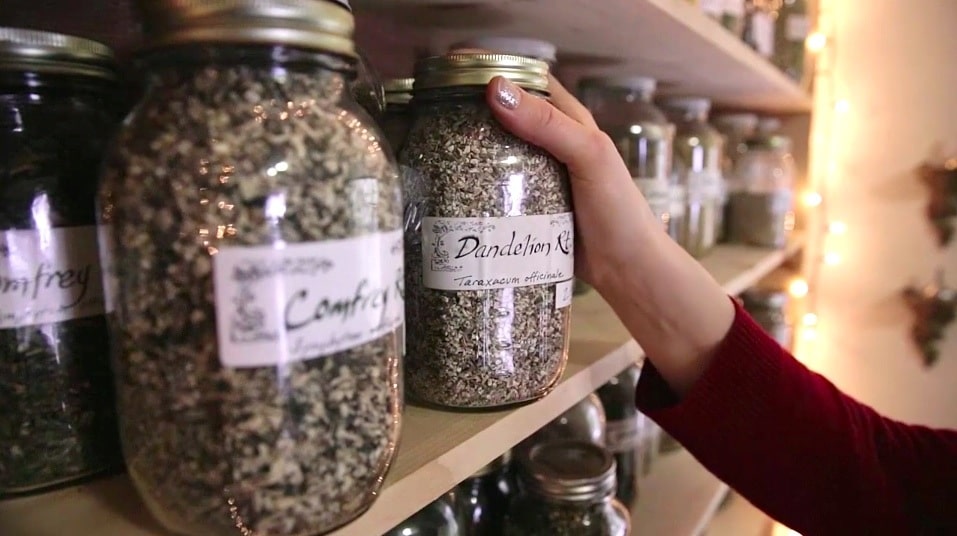
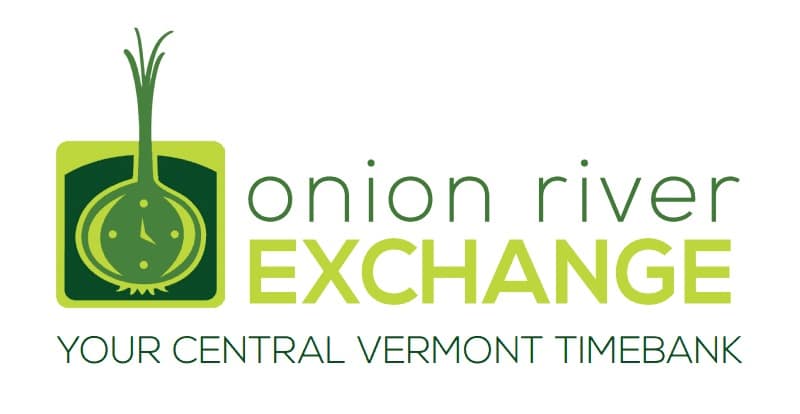
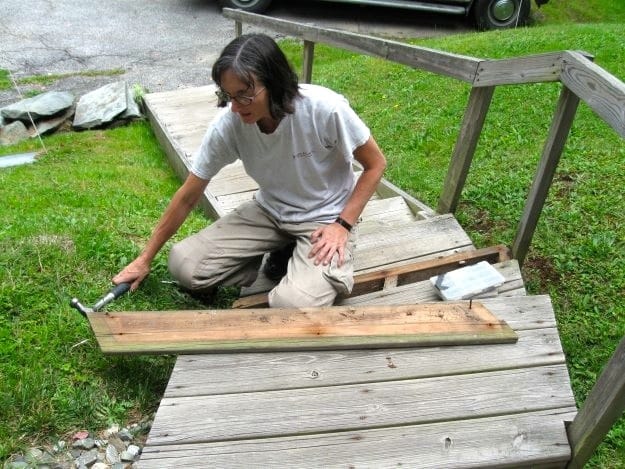
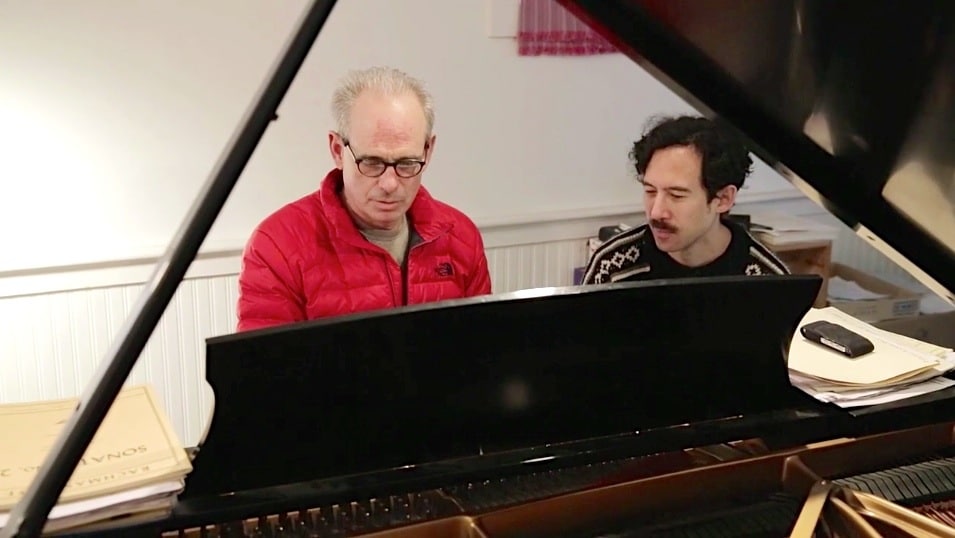
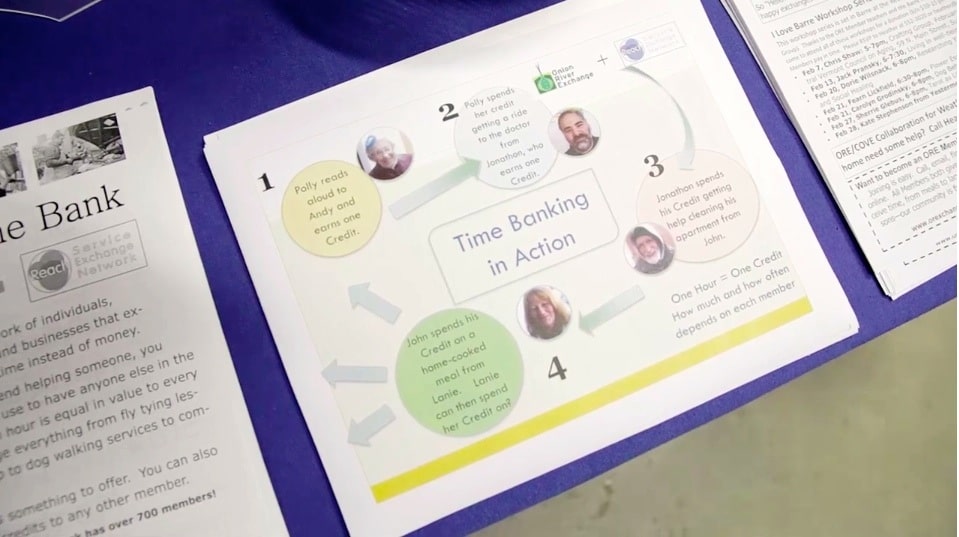
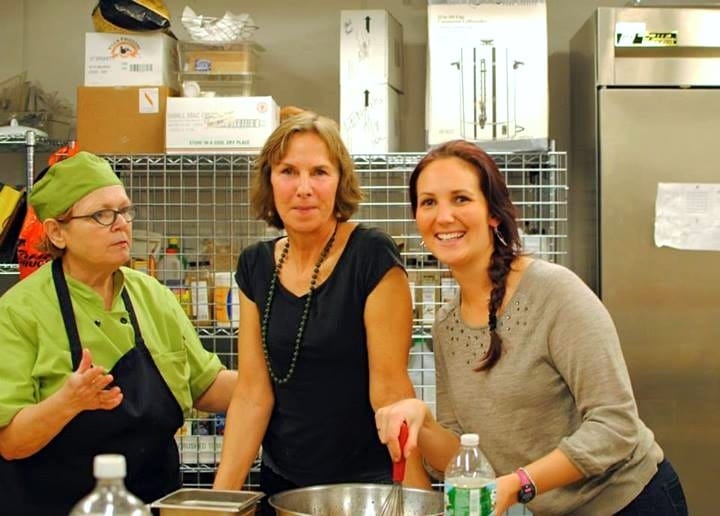
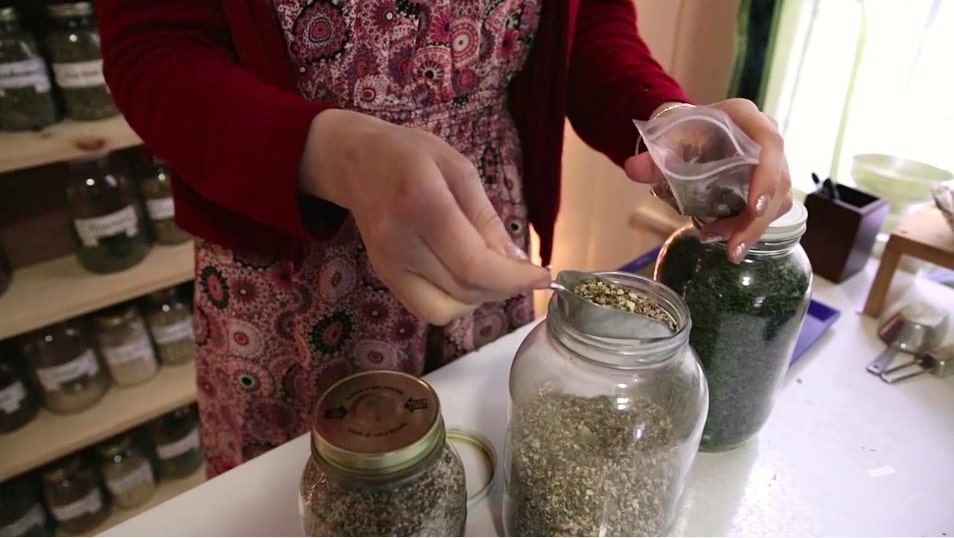
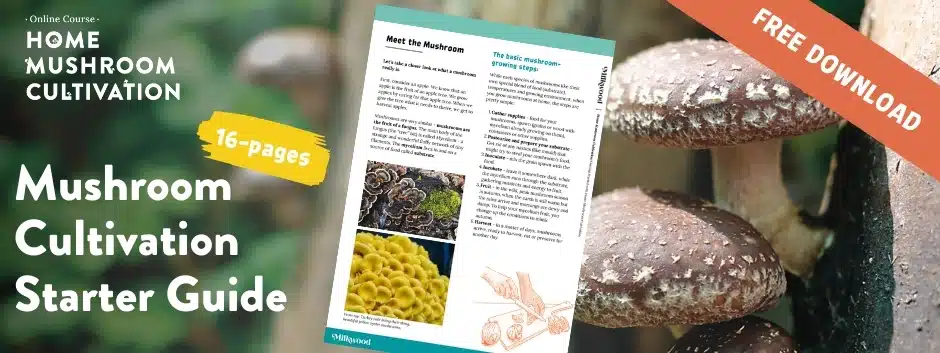


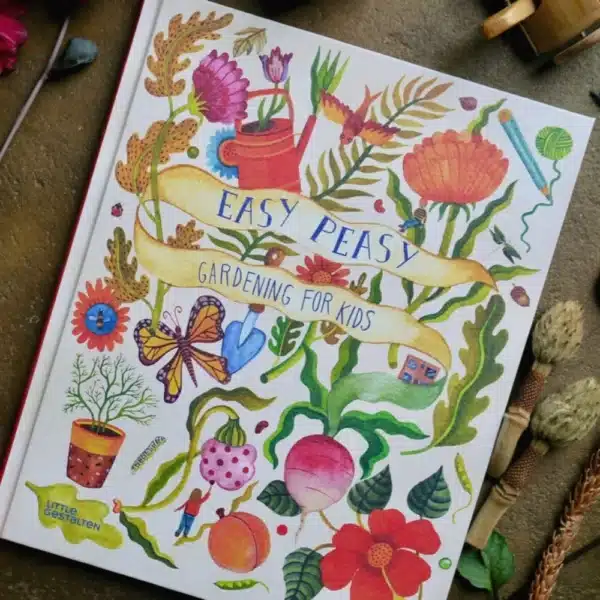

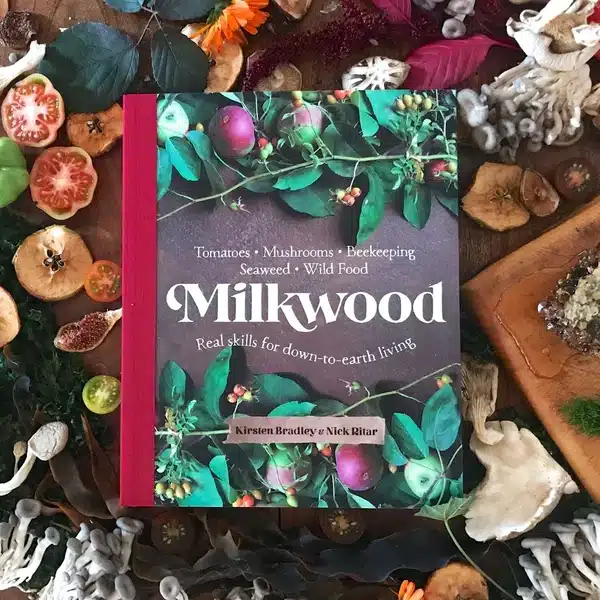






Reblogged this on DuRite Aquaponics.
I just love that founding concept of everyone’s time being of equal value.
My Dad used to barter with his patients as many of them couldn’t afford dental treatment otherwise. He would tell them the cost of the treatment and they gave him something of equivalent retail value (usually artists exchanging paintings and sculptures). It worked out well for them as they usually wouldn’t have received the retail price in their pocket and Dad got some art he liked (and some he didn’t was hung in the garage!).
Sounds like the old barter system.
Leslie
This is so fantastic, thanks for the article. I love it!
Reblogged this on The Violet Verge and commented:
interesting…
Nice one Milkwood! I’ve been trading photo organising services with a personal trainer this last month or so – it is awesome. I am not sure why this idea hasn’t taken off in Australia? Thanks for the inspiration, I’m off to do some research on Time Banking xx
CENTs is a volunteer run community exchange network operating throughout Tasmania where people trade their goods, services and skills with one another without money. http://www.nwcents.org
I just love this idea.
Sounds like another re-imagining of LETS.
It is, but it’s not – i think by cranking down the wide angle barter lens down to specifically bartering *time* is an interesting take on barter, and produces different results.
It’s also a highly democratic take on barter – rather than struggling to establish ‘value’ of good and services, it really does emphasise that my time is worth the same as your time.
Perhaps because, when it really comes down to it – time is the most precious thing that we have?
Reblogged this on rabidlittlehippy and commented:
What a wonderful concept and one that can easily be integrated into our current monetary based lives. Offer a swap of services or a product rather than money. You’ve got nothing to lose. 🙂
This is going to get a big ol’ share on the Pip Magazine FB and Twitter feeds. Absolutely inspiring, this. But, you know what, if we love the idea so much – which many here seem to – we just need get out there and do it.
I absolutely love this, thanks so much for sharing!
We often do this with family and friends, my cousin will mind my kids for a few hrs, I’ll bring her a few vegies from the garden and some eggs, or my husband will service a friends’ car and she rotary hoed our vegie garden. It would so invaluable, I think, to be able to do it on a larger scale, though. I love the credits idea, it means everyone benefits according to their time given, such a fair way to live, just love it!
I’ve been very interested in time credits since I first read up on Pierre-Joseph Proudhon and Mutualism. Time banks are popping up around the world and they do support a local region very well, which is both positively community-building and somewhat bioregionalist, but I do think that time banking would reach its fullest potential when scalable to a global network.
Jnana have been working on time banking in Australia and also a global platform for it, from what I can see. I am most excited to see where this leads.
– http://www.timebanking.com.au/
– http://www.eserai.com/
– http://www.jnana.com.au/projects
Reblogged this on Highest Good News and commented:
One of the many tools for building resilient and sustainable communities!!!! Time banking is a highest good for All solution.
Barter refers to exchanges that do not rely upon a currency (a medium of exchange), so time banking isn’t really barter as there’s an agreed unit of currency – one hour – along with the assumption / enforcement that that unit is of equal intrinsic worth to all involved. This assumption obviously advantages people who are time rich and cash poor, and vice versa. It’s a lovely idea, but probably unworkable. F.e. I note most commenters here that mentioned specific exchanges they do or would like to do, were actually referencing products or goods as an exchange medium, and the… Read more »
Yes it is a problem in my mind…say a doctor donates an hour of time (with that is hidden countless hours and money for training) and someone says how about I repair your car doc? How to address that?
Then’s the perceived value – this doc may help you with appendicitis potentially saving your life and heaps of pain in an hour operation. But your car repair in exchange may save the doc heaps of time in travelling….
Great idea!
Reblogged this on A Random Harvest and commented:
This has been re-blogged by others, but in case you haven’t seen it, it’s worth reading, thinking about and acting on . . . ~ Linne
I belonged to a “Green Dollar Exchange” many years ago, the same as this idea. However I did an awful lot of work for others to find others weren’t so happy to the same and ended up frustrated and out of pocket substantially time wise. BUT a brilliant idea if it worked well enough and everyone was committed to it.
That’s a truly amazing idea! life can literally be so simple 🙂
I love the potential here – I agree there might be some disadvantages but I can see it working really well in niche communities where people have similar or compatible skills, for example my mind is racing at the possibility of implementing it between a group of local farmers – each who have different specialist skills but are in the same brain space, working to achieve the same sort of things – Thanks!